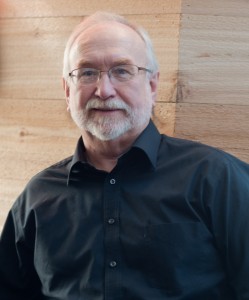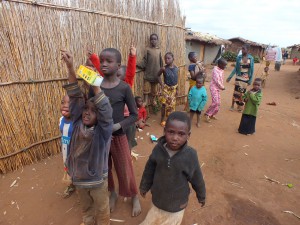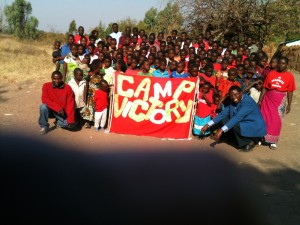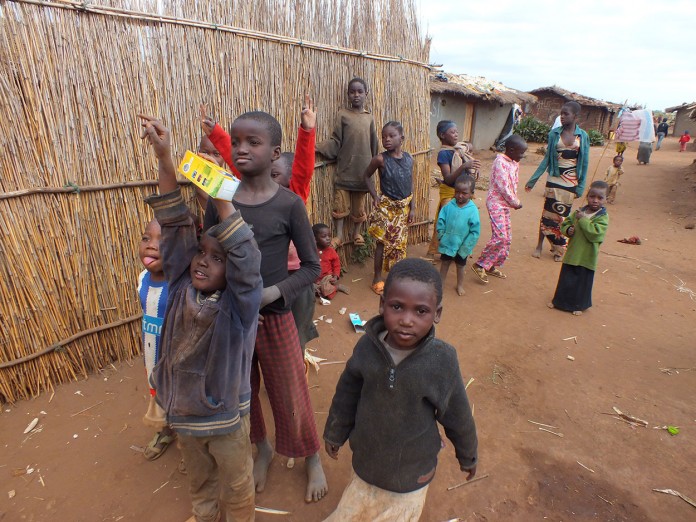Submitted by Poyeho Project

In November of 2005, I made my first trip to South Africa and the continent of Africa captured a part of my heart. I was traveling with two young people to escort a young lady home from one year as a volunteer at a farm near Jeffries Bay. During my two week visit, I began to realize that, although the country was very modern, there were a lot of needs and a huge gap between the wealthy (about 7 percent of the nation) and the poor (about 80 percent of the nation). This leaves a very small middle class. Although they had gained independence in 1994, not much had changed in reality from the days of Apartheid. Spending most of my time with the poorer segment, I soon discovered that there was a significant opportunity for these people to begin moving forward.
The government had taken some major shifts, both for the good and the bad. One of the positive aspects was a tremendous focus on providing funding to the South African tribal people to develop businesses. The difficulty was that they had little to no training in starting or running a business, and, in most cases, the businesses that were funded failed all too soon. It was into this imbalance of opportunity that my heart reached out to their situation.
Upon returning to the United States, I shared with my wife that I felt God was calling me to do something in Africa. Over the next year the concept of Poyeho was birthed. Poyeho is actually the phonetic spelling of a Greek work that means “making a way.” I returned to Africa in April of 2007 with a pretty clear picture of a non-profit focused on business training and helping individuals develop clear business plans complete with the strategies to make them successful. During this trip, I spent one week in Zambia and five weeks in South Africa. This gave me time to talk with a number of people that I had met the first time and confirm with them what I had seen and the direction that I was feeling to go.
 Upon arriving back in the United States, I organized Poyeho Project, registered it in Washington State, and filed for 501-c-3 status with the federal government. My wife and I returned again in October of 2007, spending two months working with people in the Humansdorp/Jeffries Bay area. This is a rural farming area with a limited amount of industry. It is located ninety kilometers west of Port Elizabeth along the N2 highway. When I arrived this time, I had developed a fourteen hour curriculum to begin to train them in developing and running a business. Our time there was very successful and more than forty individuals received training in several locations.
Upon arriving back in the United States, I organized Poyeho Project, registered it in Washington State, and filed for 501-c-3 status with the federal government. My wife and I returned again in October of 2007, spending two months working with people in the Humansdorp/Jeffries Bay area. This is a rural farming area with a limited amount of industry. It is located ninety kilometers west of Port Elizabeth along the N2 highway. When I arrived this time, I had developed a fourteen hour curriculum to begin to train them in developing and running a business. Our time there was very successful and more than forty individuals received training in several locations.
Over the next few years, we helped to develop and expand two existing businesses, East Cape Gateway Shuttle and Geswint Bricks. The shuttle business is an airport shuttle that transports people from Port Elizabeth to different resorts and tourist attractions along the Eastern Cape beaches and inland game parks. This business is flourishing today and caters to tourists from Europe, Australia, Canada and the United States. Unfortunately, Geswint Bricks did not survive. It was a family run business that was profitable, however the two sons who were the keys to the success and future of the business felt to pursue other directions. Unable to sell the interest in the business, the father chose to shut it down.
In 2010, we expanded into Zimbabwe and are currently working with a team to develop a demonstration farm in the Chikomba district south of Harare. At one time in its history, Zimbabwe was known as the “bread basket of Africa.” Currently through years of political unrest and poor management, it has been unable to feed its own population. Through training and development of better farming practices, Poyeho is working alongside KIDA and several other organizations to return this nation to the productive country of its history.

In 2013, we conducted our first workshop in Malawi. We had over two hundred attendees from across the nation. From this workshop, we established two projects with whom we are currently working: UCOM and NSHFO. The vision of UCOM is to impact several thousand orphans in the Lilongwe area, providing their needs for food, clothing, shelter, and education. They have several outside funding sources, but their main support is internal, through a variety of farming approaches. From animal husbandry to crop production, their intention is to produce sufficient goods to not only feed their people, but to produce enough extra to sell in the marketplace and fund the other aspects of their vision. NSHFO is located in southern Malawi, near the Mozambique border. They are currently raising goats with the eventual plan of raising beef cattle. We are assisting both of these projects with some finance, but ultimately our desire is to come alongside and help them organize and strategize to make their dreams a reality, bringing success and sustainability to their communities.
My next trip is scheduled for April of this year and will by my eleventh trip since 2005. At Poyeho Project we have added a line to the old adage that states: “Give a man a fish and you feed him for a day. Teach a man to fish and you feed him for a lifetime.” We add, “Train a man to own a fish business and you feed a village for generations.” We would welcome any questions that you might have and would love to have you support us financially to bring sustainability to southern Africa. Please visit www.poyeho.com, like us on Facebook www.facebook.com/poyeho, or email me, Dave Robbs, Founder and Executive Director, at info@poyeho.com.



































